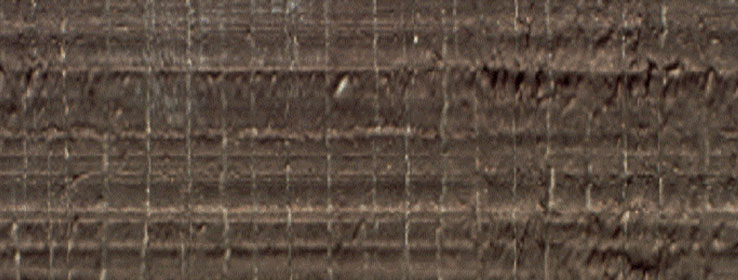DESCRIPTION
Thin, long, relatively straight cracks running in a singular direction on a previously stained wood surface.
POSSIBLE CAUSE
The most common surface to show this failure is rough-sawn plywood, shakes, and shingles that have been stained with a semi-transparent or solid color alkyd stain. The main reason for "cracking" is expansion and contraction of the substrate caused by changes in temperature and humidity.
With stain, the coating usually does not peel or flake. Instead, the cracked wood is open for moisture intrusion from outside weather conditions, leading to delamination and deterioration of the wood.
If the wood is highly textured, water remains on the total surface for extended time periods.
Stains penetrate allowing very little of the stain to remain on the porous wood surface; as the wood cracks, the stain also cracks.
When airless spraying the rough-sawn surface, and not back-rolling or back-brushing, the stain tries to bridge any existing cracks, and the stain will likely crack quickly.
SOLUTION
Using detergent and water, scrub siding to remove old oxidized stain film, dirt, and other contaminants. Flush under low pressure with clean water and allow to dry thoroughly.
Fill large holes found in plywood grooves with paintable caulk to prevent further water intrusion. If cracking is severe, it may be necessary to replace the wood.
EXTERIOR
Primer(if needed)
PrimeRx™ Peel Bonding Primer
Exterior Latex Wood Primer
Exterior Oil-Based Wood Primer
Suggested Finish
Emerald®
Duration®
Resilience™
SuperPaint®
A-100®
WoodScapes®




